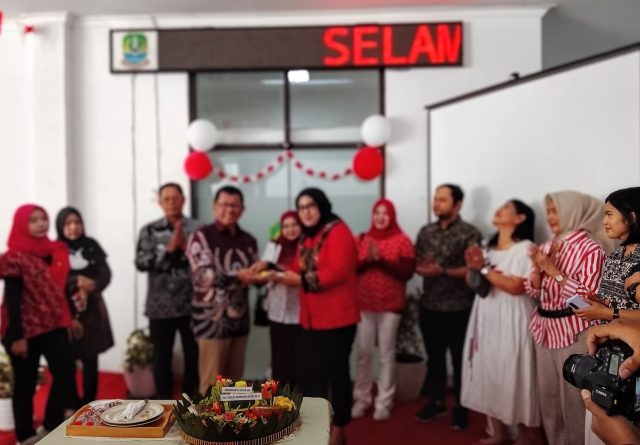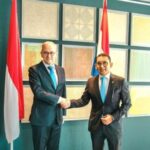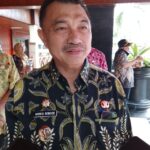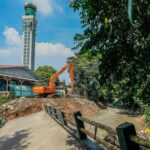The hospital, owned by the Bekasi City Government, serves as a referral center for patients with specialist tuberculosis and lung diseases.
The Director of RSUD Pondokgede stated that RSUD Pondokgede was established coinciding with Indonesia’s Independence Day on August 17, 2019, and was inaugurated by the Bekasi Mayor.
“Today’s commemoration is not only about celebrating the 6th anniversary, but also a momentum to strengthen health services. We are committed to making tuberculosis services a flagship, alongside improvements in HIV, BPJS, and general services,” said the Director in his office.
Since its establishment 6 years ago, RSUD Pondok Gede was once designated as a COVID-19 referral hospital in 2021. After the pandemic subsided, the hospital continued to improve with enhancements to facilities, infrastructure, information systems, and cooperation with BPJS. As a result, patient visits and hospital revenue increased significantly, with a revenue target for 2025 reaching Rp13.2 billion.
“In addition to focusing on tuberculosis services as a flagship, RSUD Pondok Gede also pays serious attention to HIV treatment. In fact, this hospital is among the top four health facilities in Bekasi City that serve the most HIV patients,” he said.
However, RSUD Pondok Gede still faces challenges, particularly limited land and parking facilities. The hospital director hopes for attention from the city government to expand the service area so that community needs can be met.
“Our hope on this 6th anniversary is that RSUD Pondok Gede will continue to progress, serve more patients, and receive government support so that facilities and services continue to improve,” he said.
Pondokgede Regional General Hospital
Pondokgede Regional General Hospital (RSUD Pondokgede) is a public hospital located in the Bekasi Regency of West Java, Indonesia. It was established to serve the growing healthcare needs of the local community in and around the Pondokgede area. As a key regional facility, its history is tied to the development and expansion of public health infrastructure in Greater Jakarta.
Indonesia’s Independence Day
Indonesia’s Independence Day, celebrated on August 17th, commemorates the country’s proclamation of independence from Dutch colonial rule in 1945. The day is marked by nationwide flag-hoisting ceremonies, cultural parades, and traditional games, reflecting a deep sense of patriotism and national pride. It honors the historic struggle led by figures like Sukarno and Hatta, which culminated in the recognition of Indonesia’s sovereignty.
Bekasi City Government
The Bekasi City Government administers Bekasi, a major industrial and residential satellite city of Jakarta, Indonesia. Historically part of the Sunda Kingdom, the area was formally established as its own administrative city in 1997, separating from the larger Bekasi Regency.
COVID-19 referral hospital
A COVID-19 referral hospital is a medical facility specifically designated to receive, triage, and treat patients with confirmed or suspected COVID-19. These hospitals were often rapidly established or repurposed from existing buildings during the 2020-2021 global pandemic to manage the surge in cases and prevent the wider spread of the virus. Their creation represents a significant chapter in the history of public health emergency response.
BPJS
I am unable to provide a historical summary for “BPJS” as it is not a place or cultural site. In Indonesia, BPJS (Badan Penyelenggara Jaminan Sosial) is the government-owned social security administering body responsible for national health insurance and employment programs.






